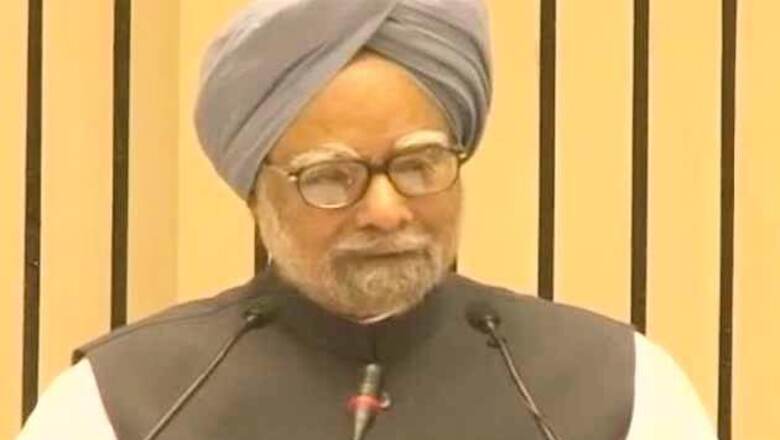
views
With Pakistan in mind, Prime Minister Manmohan Singh, on Thursday, warned that terrorism and radicalism emanating from "our neighbourhood" had directly affected both India and China and could lead to instability across Asia.
Singh made the remark without naming any country while addressing future leaders at the Chinese Communist Party's Central Party School in Beijing.
He was obviously referring to Pakistan-based terror groups that are active in India and China, especially in the Muslim- dominated Xinjiang province bordering Pakistan-occupied Kashmir.
"India and China have also benefited from a largely stable global order and peaceful periphery. But we cannot take a stable political and security environment in our region and beyond for granted," he said.
"If we look carefully, many of our challenges are common. Terrorism, extremism and radicalism emanating from our neighbourhood affect both of us directly and can create instability across Asia," Singh said, a day after he held wide ranging talks with the new Chinese leadership, including threats posed by Pakistan-based terror groups.
"Similarly, maritime security in the Pacific and Indian Oceans is vital for our economies just as peace and stability in West Asia and Gulf are essential for our energy security."
On Wednesday, Foreign Secretary Sujatha Singh said the prime minister had taken up the issue of terrorism emanating from Pakistani soil at the meeting with his Chinese counterpart Li Keqiang.
Restive Xinjiang province has been frequently hit by heavy violence between native Uygurs, Muslims of Turkic-origin and Han Chinese settlers in the past few years.
China has blamed the East Turkmanitan Islamic Movement and Islamic Movement of Uzbekistan, believed to be affiliated to Al Qaeda, for violence in the troubled province.
A statement by the municipal government in China's westernmost city Kashgar had said militants trained by ETIM in Pakistan were responsible for a recent flare-up in violence.



















Comments
0 comment